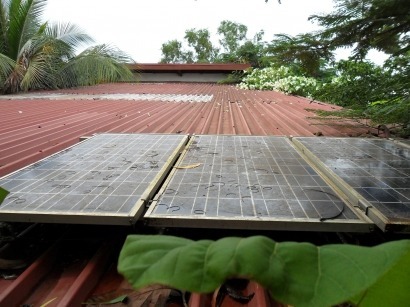
The report, Developing Renewable Energy Capacity, was released this morning, and is a collaboration between the Davos, Switzerland-based WEF and financial services group PricewaterhouseCoopers.
There’s no question that renewable power capacity has grown rapidly over the past decade. Driven by economic development and associated increasing demand for energy, 2009 saw over $150 billion invested in renewables. This amount increased to over $240 billion in 2010 with the US and Europe adding more renewable than conventional power capacity.
“Simply spending more government and multilateral money will not transform renewable energy from a niche player to a dominant market technology in a particular country unless early regulatory and infrastructure challenges are addressed first,” said Busba Wongnapapisan, Head of Renewable Energy Industry at the World Economic Forum and co-author of the report.
Institutional and regulatory frameworks must facilitate private renewable energy activity. Yet they often hinder it – particularly in emerging markets, the report said.
The grid infrastructure needs appropriate capacity and resilience to cope with the intermittent nature of renewable energy sources.
The report aims to move the debate forward and draws on the study of five countries: South Africa, Indonesia, Jordan, Mexico and Morocco; the study is also intended to provide key lessons and increase understanding of regulatory and infrastructure issues in emerging markets.
As an example the report cites in South Africa, where businesses have organized themselves into the National Energy Association and Alternative Energy Association, conducting workshops and working closely with the government and stakeholders to support the design and development of renewable energy feed-in tariff programmes.
Jordan is also highlighted for an electricity law that requires its state-owned utility to purchase electricity from independent power producers at full retail price.
The report then goes on to identify five key factors that impede deployment of renewables in emerging markets:
“The removal of regulatory and infrastructure barriers is pivotal to support the further development of renewables in many of these emerging countries,” said Gus Schellekens, Director, Sustainability and Climate Change, PwC, United Kingdom, and adviser to the project.
“Unless governments are able to address these barriers, there is the risk that market development will be fundamentally constrained. The five countries highlighted by the report have the opportunity to make substantial progress in years to come, supported by international interest in the ‘green economy’ and their abundance of renewable resources,” he added.
For additional information:

